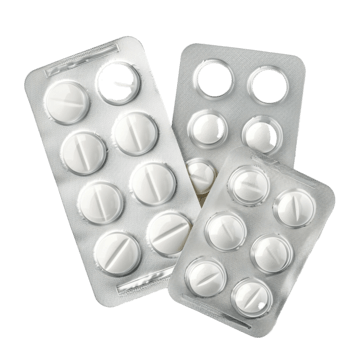Diclofenak

Diclofenak 25mg, 50mg, 75mg, 100mg
Diclofenak is a non-steroidal anti-inflammatory drug (NSAID) used to relieve pain, reduce inflammation, and lower fever. It works by inhibiting specific enzymes in the body that contribute to the production of prostaglandins, substances that promote inflammation and pain. Diclofenak is commonly prescribed for conditions such as arthritis, acute pain, and menstrual cramps, offering effective relief for those suffering from various inflammatory disorders.
Order NowDescription
Diclofenac is a nonsteroidal anti-inflammatory drug (NSAID) commonly used to relieve pain, reduce inflammation, and lower fevers. It works by inhibiting enzymes in the body that contribute to the production of prostaglandins, which are responsible for inflammation and pain signals.
Uses / Indications
- Osteoarthritis
- Rheumatoid arthritis
- Ankylosing spondylitis
- Acute pain management (e.g., postoperative, dental pain)
- Pain relief in conditions like tendinitis, bursitis, and gout
- Menstrual pain (dysmenorrhea)
Dosage and Administration
Adults:
The typical initial dose may range from 50 mg to 150 mg per day, depending on the severity of the condition. Suggested dosages can vary based on form (tablet, gel, injection) and individual patient considerations.
Children (age varies by condition):
Dosage should be determined by a healthcare provider based on the child’s weight and diagnosis.
Note: Always follow your healthcare provider’s instructions regarding dosage and administration.
How It Works (Mechanism of Action)
Diclofenac works primarily by inhibiting cyclooxygenase (COX) enzymes, which play a key role in the synthesis of prostaglandins. By blocking the production of these chemicals, diclofenac effectively reduces inflammation, pain, and fever.
Side Effects
Common side effects:
- Gastrointestinal discomfort or upset (nausea, diarrhea)
- Headache
- Dizziness or lightheadedness
- Skin rash
Rare/serious side effects:
- Ulcers or bleeding in the stomach/intestines
- Severe allergic reactions (rash, itching, swelling)
- Kidney or liver problems (e.g., jaundice, changes in urination)
- Heart attack or stroke
Seek medical attention if serious side effects occur.
Precautions / Warnings
- Discuss any pre-existing conditions, especially liver, kidney, or heart disease, with your doctor.
- Use caution if you are pregnant, planning to become pregnant, or breastfeeding.
- Avoid alcohol to reduce the risk of gastrointestinal side effects.
Drug Interactions
Diclofenac may interact with:
- Other NSAIDs or pain relievers
- Anticoagulants (e.g., warfarin)
- Certain antidepressants
- Diuretics (water pills)
- Medications that affect liver enzymes
Always inform your healthcare provider about any other medications or supplements you’re taking.
Storage Instructions
- Store at room temperature (20°C–25°C / 68°F–77°F)
- Keep away from moisture and direct light
- Do not freeze liquid preparations
- Keep out of reach of children
Missed Dose / Overdose
Missed a dose?
Take it as soon as you remember. If it’s close to the time for your next dose, skip the missed one. Do not double up.
Overdose symptoms:
- Severe abdominal pain
- Nausea and vomiting
- Drowsiness or dizziness
- Difficulty breathing
Contact a poison control center or seek emergency medical help immediately.
Contraindications
- Allergy to diclofenac or other NSAIDs
- History of asthma, urticaria, or allergic-type reactions after taking aspirin or other NSAIDs
Brand Names / Alternatives
- Voltaren
- Cataflam
- Flector (patch)
- Generic name: Diclofenac

